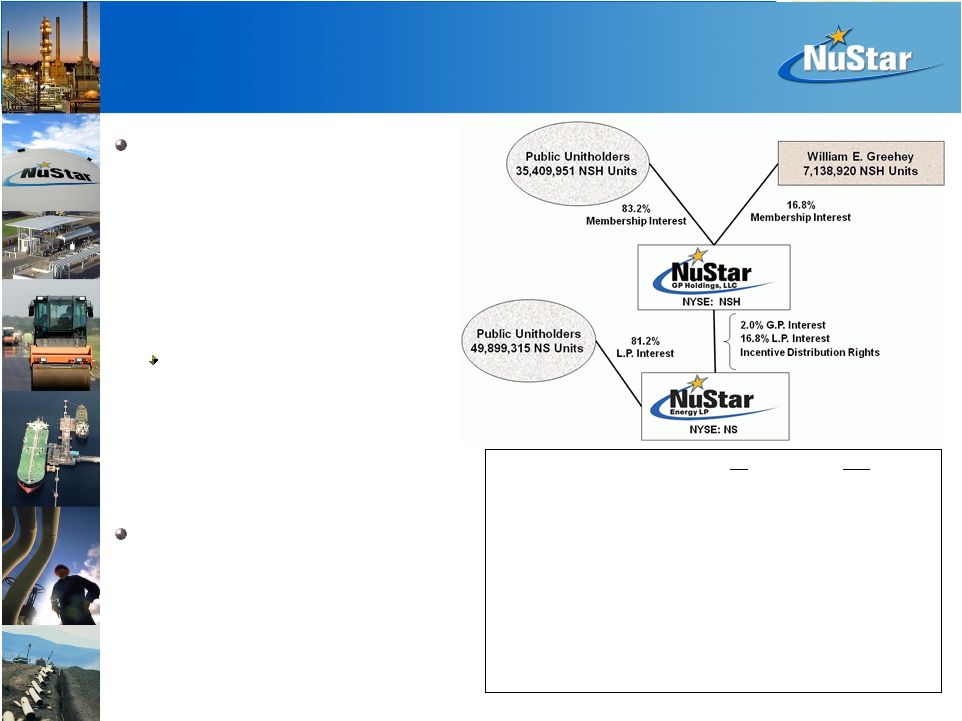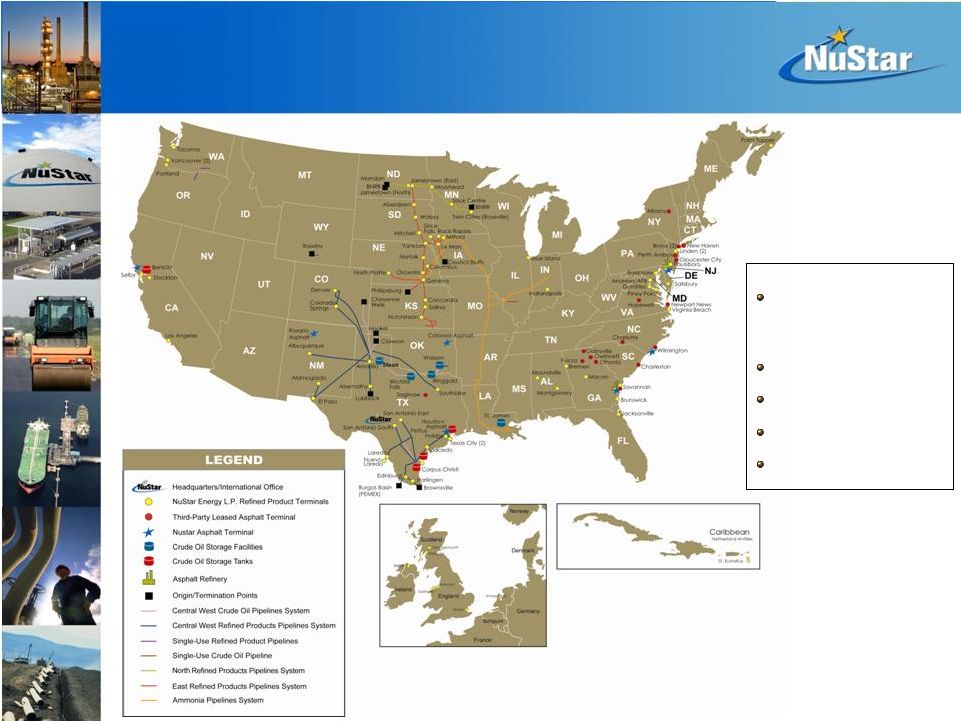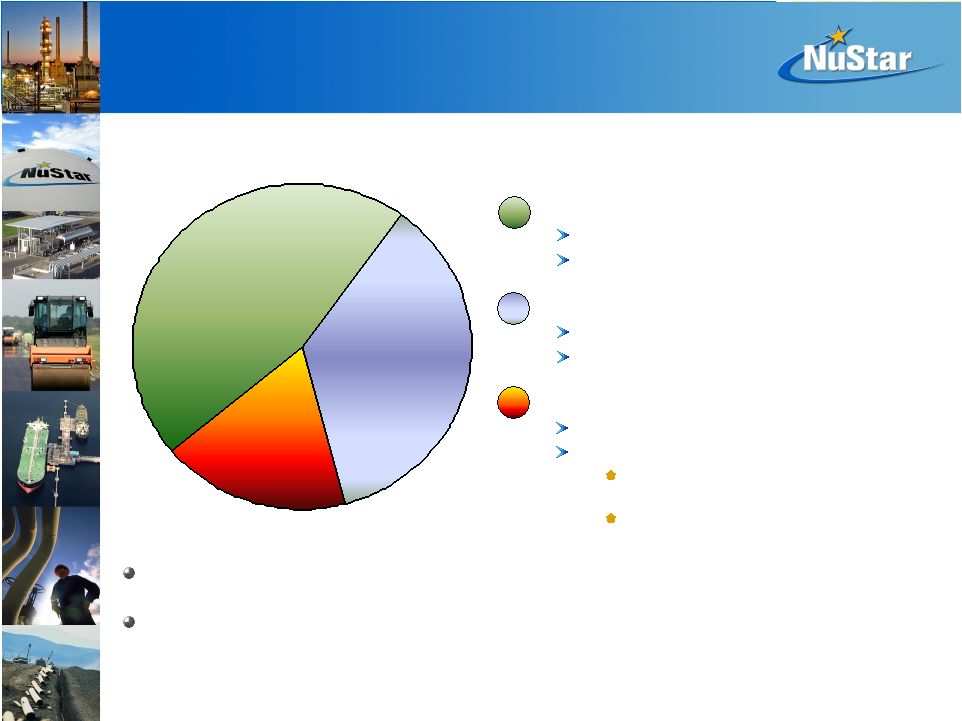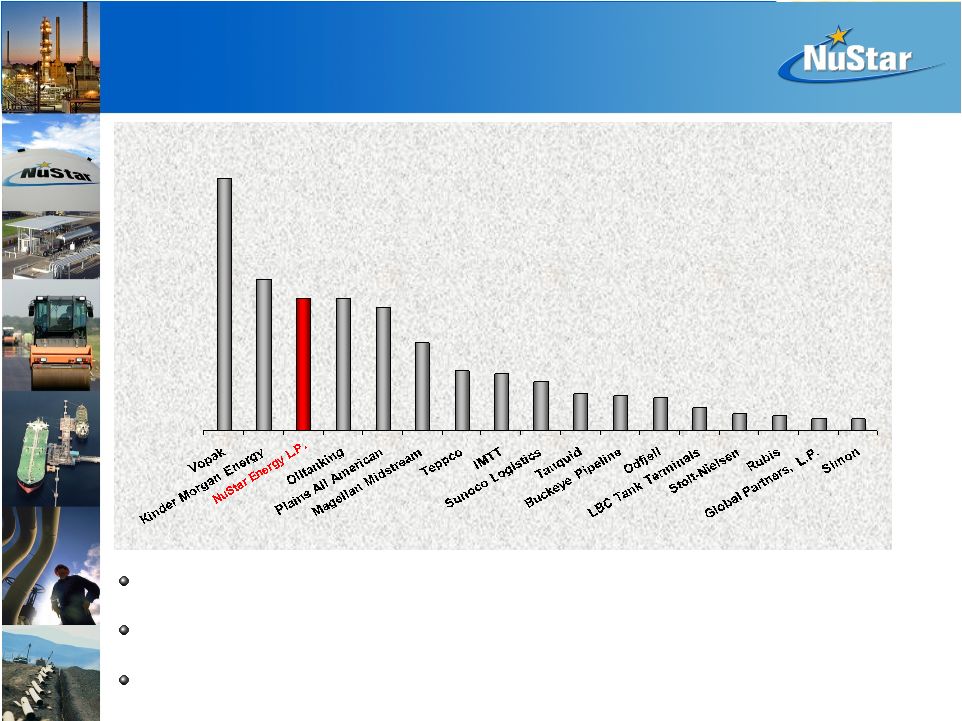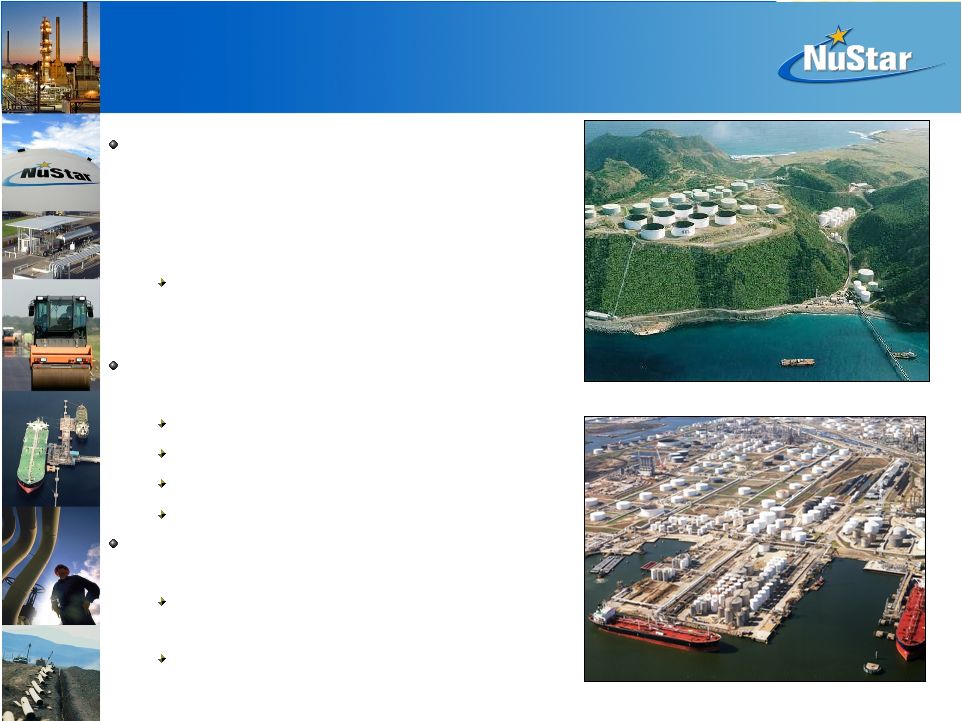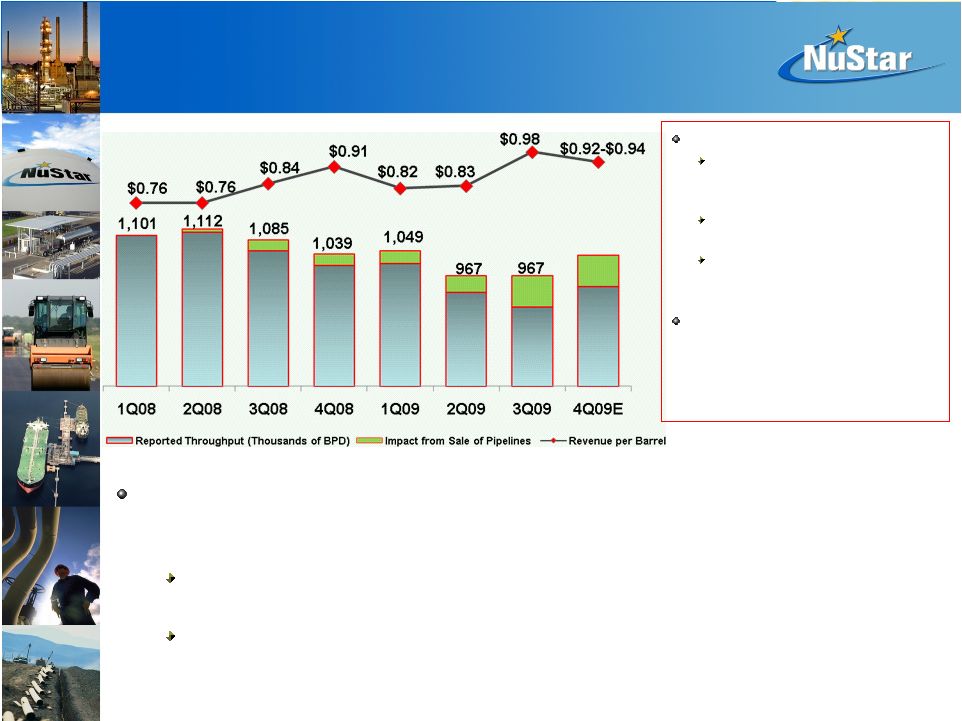NuStar’s Transportation Segment Should Benefit from Growth in Product Demand, Although Growth Will be Slower in the U.S. Than Developing Nations E = Estimate 10 2009 gasoline demand has been resilient in the face of a weak economy, however demand for other refined products continues to be weak Previously impacted by high prices in 2008 and now impacted by the global recession Most industry experts are predicting that 2010 product demand should recover slightly as the economy improves Experts project world oil demand to increase 1% to 2%, gasoline demand to increase by around 1%, distillate demand to increase by over 3% and jet fuel demand to increase by around 1% Refinery utilization is projected to continue to be low, or in the range of 80% to 85% Refined product demand growth expected to be less in the U.S. and primarily international, mainly the Far East, Middle East and parts of Latin America The move towards more fuel efficient products will limit demand growth in the U.S. longer-term Macro Environment Impact to Transportation Segment 2009 transportation results should be equal to or slightly better than 2008 results despite lower volumes 2009 revenue per barrel expected to be higher than 2008 despite lower volumes due to: 7.6% tariff increase effective July 1, 2009 Sale of pipeline assets with moderate throughputs, but a low revenue per barrel Decline in 2009 throughput volumes mainly due to asset sales, unplanned outages and planned turnarounds - Less due to economic run cuts 2009 results should also benefit from lower operating expenses mainly due to lower power costs Expect NuStar’s throughput volumes to increase slightly in 2010 compared to 2009, excluding the impact of the assets sales, and in-line with our view of a modest economic recovery next year Recent refinery closures not expected to materially impact NuStar’s results While we are currently budgeting the tariff adjustment to be around 1.5% lower starting July 1, 2010 compared to the July 2009 adjustment, the 2010 calendar year rate should be slightly higher than the 2009 calendar year rate | 

